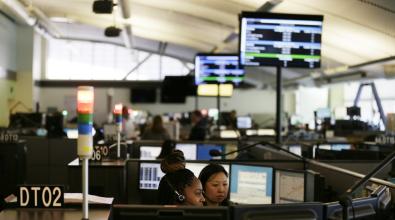Expert advice on how to master crisis communications

For mayors, the COVID-19 crisis presents a communication challenge unlike anything they’ve faced before.
There’s layer-upon-layer of health, economic, and social problems to inform the public about, and even good news about “flattening the curve” of infections comes with caveats and a need for nuance. Misinformation spreading on social media is a headwind that never stops blowing. And people are suffering: In communities across the country, there’s deep pain, hardship, fear, and frustration.
Communicating in times like this requires practicing the “Stockdale Paradox,” Harvard University Professor Herman B. “Dutch” Leonard told mayors at a recent virtual coaching and learning session of the COVID-19 Local Response Initiative.
The term, coined by author Jim Collins, refers to Admiral James Stockdale, whose leadership as the senior American military officer in the prisoner-of-war camps in Vietnam was credited with saving many of his fellow inmates’ lives.
Leonard recalled how Stockdale said that in dire circumstances, leaders need to do two fundamental things. “First, they need to be brutally honest about what the actual circumstances and conditions are,” Leonard said. “Because if they’re not brutally honest, and instead engage in a fantasy about what’s going on, people will soon be disappointed. That despair is the worst thing possible for them — and the leader also loses credibility, an essential asset that must be preserved if she or he is to be helpful.”
Where the paradox comes in is that leaders also have to offer a rational basis for hope. In COVID-19, hope comes from the process of problem solving, Leonard said. “We are just getting started in figuring out how we can deal with these new and challenging circumstances, and we can have faith that we’re going to make rapid progress on that if we do it in the right ways.”
Leonard added an additional point to the Stockdale Paradox: the need for mayors to express empathy. “Be understanding of the fact that people are taking losses — losses of loved ones who will no longer be with us, economic losses … even suffering anxiety is a loss,” he said. “We need to acknowledge all of that.”
Six observations on crisis communication
Harvard Professor Juliette Kayyem followed with six observations on crisis communication, forged from her own experience managing a number of disasters, including the 2010 BP oil spill in the Gulf of Mexico:
1. It will end. There’s a long way to go in this ‘slow-roll’ crisis, Kayyem said, but it will eventually end. “There’s yesterday, which was all the mistakes that were made, and there’s today, which is hell. Yet there’s a tomorrow,” Kayyem said. “You have to point people in that direction.”
2. The crisis is never just one thing. The COVID-19 crisis is actually many interwoven problems — building a supply of test kits, for example, at the same time as rescuing small businesses. “It’s very helpful for the public to understand how the different pieces fit together,” Kayyem said.
3. A crisis gives mayors convening authority. Residents want to hear from their mayor, and during a long-running crisis like this one, it’s a good idea for mayors and their teams to get in a routine about when and how they do that. “If you haven’t done it, be prepared to start to get your ‘battle rhythm’ for your team and your communications strategy,” Kayyem said. “It should be the same time every day, same format.”
4. Be yourself. A crisis will reveal your true identity — so don’t try to be someone you’re not, Kayyem said. She cited a Kentucky mayor whose curse-ridden Facebook rant imploring residents to stay indoors went viral. “It sounds like he’s like that,” Kayyem said. “Be yourself — the identity of who you were before this crisis.”
5. Systemic city problems will not get solved through this crisis. COVID-19 is exposing all kinds of root problems with inequality or poor health infrastructure in almost every community, Kayyem said — and fixing the underlying problems will take time. “There are challenges your communities are facing that need to be addressed,” Kayyem said, “but there needs to be a singular focus about your communication strategy. The response is what’s going to lead to recovery.”
6. It’s not about you. While weaving your family’s story into your crisis communications can be relatable, don’t go overboard, Kayyem said. “To the extent that you’re stressed and doing everything you can — no one really cares,” she said. “That’s why you are the mayor. Remember: You wanted this job.”


